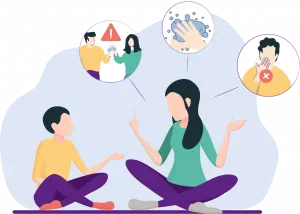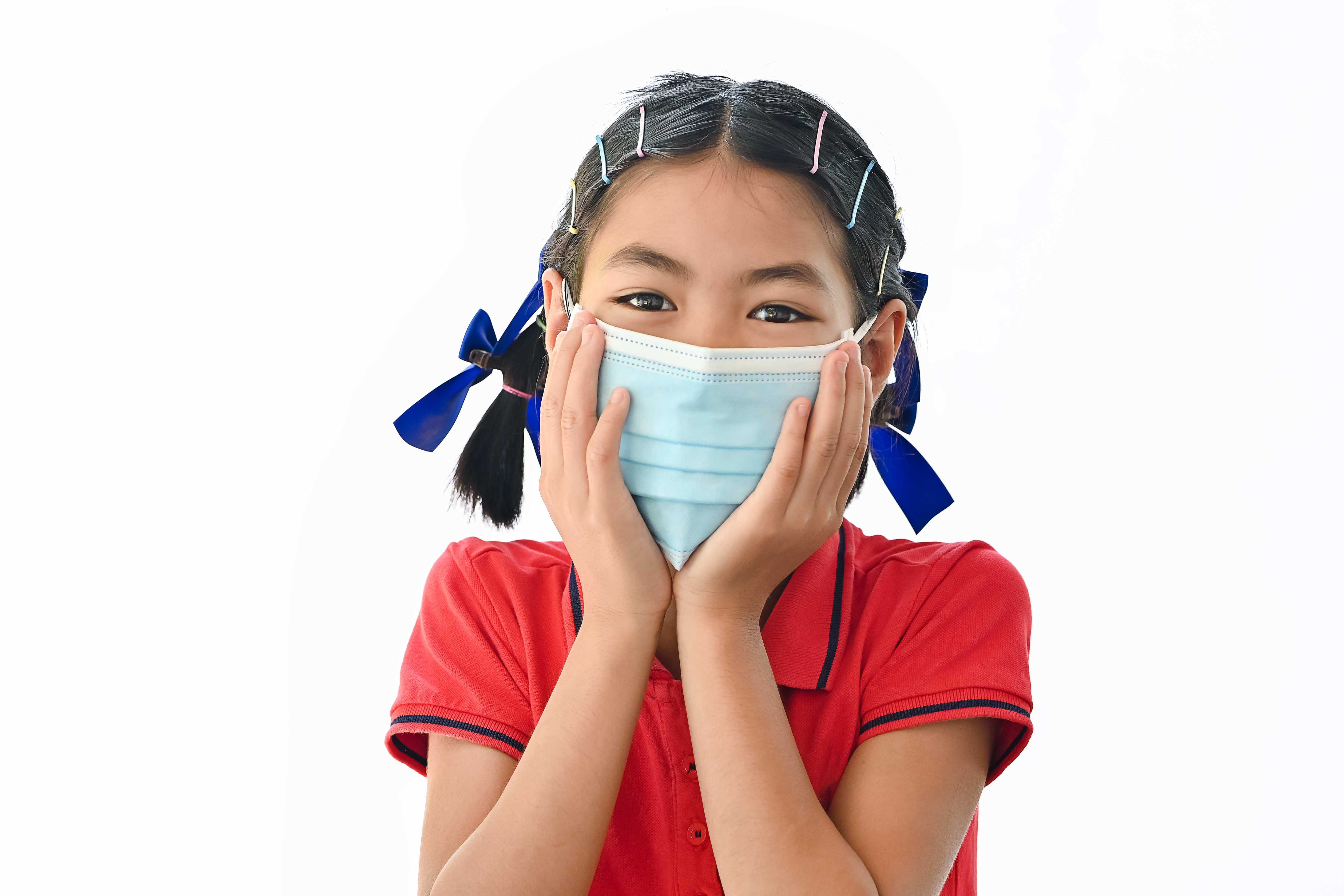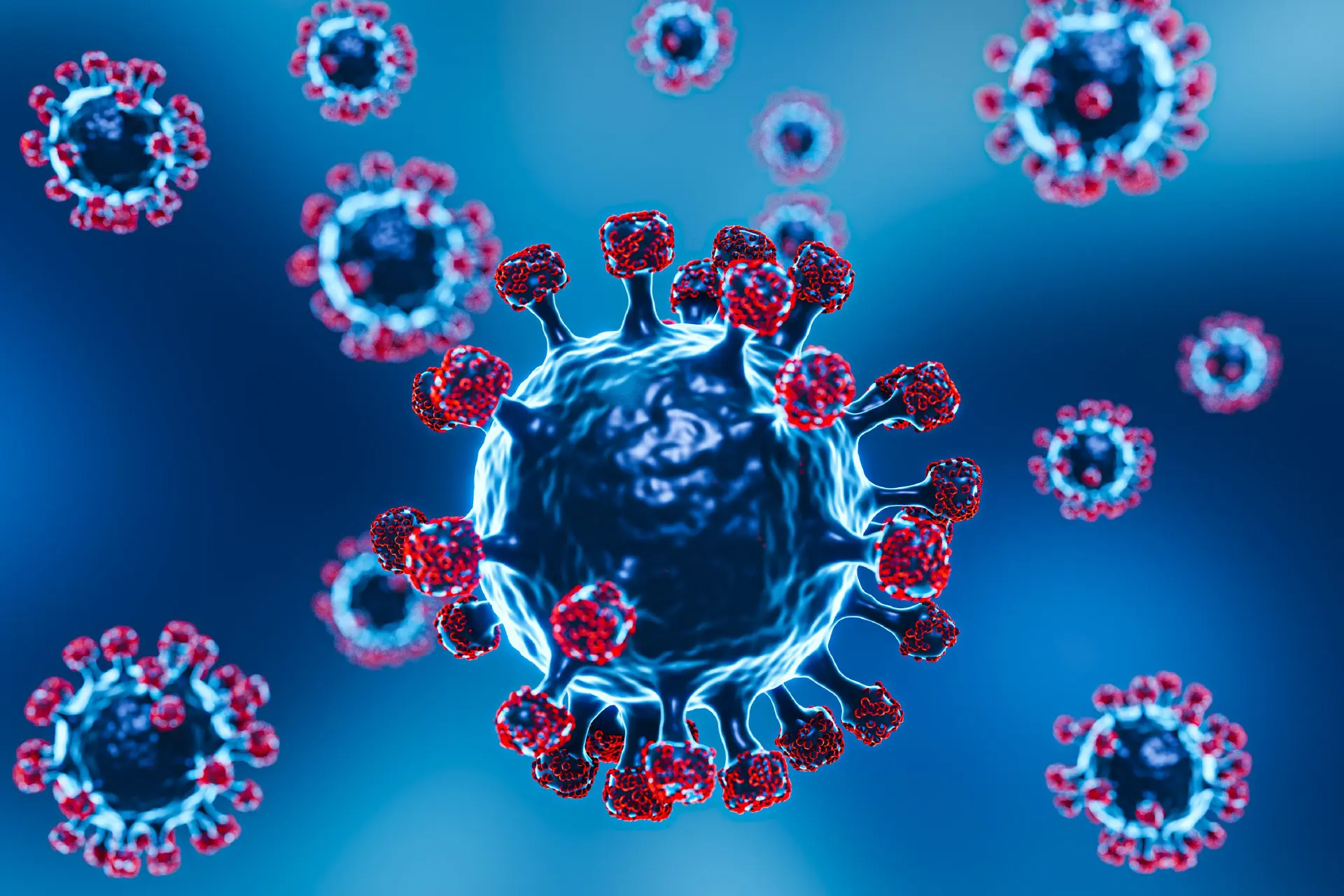Homeopath | 5 min read
Are you Keeping Kids Safe During the Coronavirus Pandemic?
Medically reviewed by
Table of Content
Key Takeaways
- The challenge is not only to keep your child safe from infection, but also to look after their mental well-being
- Socialising with other children is an important part of growing up and developing emotional intelligence
- Try and listen to them, be patient be honest, be firm, but also be kind
The novel coronavirus pandemic has disrupted life for people across the world—and it is an especially difficult time for parents of young children. The challenge is not only to keep your child safe from infection, but also to look after their mental well-being during this time. Online classes, screen fatigue and the stress of isolation can take its toll on a young mind—and could potentially come with long-term emotional and psychological consequences.
While this is a difficult time for all, there are a few simple ways in which you can both protect your child from COVID-19, and keep them happy through all the various quarantine and safety measures as well.
Additional Read: Ultimate guide for Covid-19Communicate with your children
During this time of uncertainty, your child may have a lot of questions. Listen to them when they express their worries, fears, and anxieties to you, and be as honest as you can when you respond. Explain the seriousness of the situation, but be sure to communicate that this is a powerful time of solidarity, and that they are not alone. Protect them from media sensationalism, graphic images and fake news, and make sure they receive information honestly, but gently.
Teach them how to wash their hands
Make it a point to teach your children how to wash their hands correctly. Singing the “Happy Birthday” song while hand-washing is a fun way to count down the recommended 20 seconds. Practice with them a few times, and also explain to them when hand-washing is most important—before they touch their face, after they touch an unsanitised object or surface, and after coming in from the outside. Also teach them the importance of using a hand sanitizer, and get them used to the idea that their hands need to be as clean as possible, at all times.

Help them get used to face masks
In addition to explaining the importance of the face mask, it is important to get your child used to the practice of wearing one. Masks should be worn at all times in public, or whenever they come in contact with someone outside of their household. Explain to them that it needs to cover their nose and mouth, and that they shouldn’t touch it after putting it on. Expect them to complain, but pay attention to whether or not it fits right. Masks can be uncomfortable, so make sure to get the right size and material for your child.
Additional Read: Everything to know about COVID-19 careKeep them active and healthy
A nutritious diet can go a long way in boosting your child’s natural immunity. Limit your child’s consumption of junk food, and instead encourage them to eat fresh, well-balanced meals. It is also important that your child gets their share of exercise, considering they’re no longer able to play outside. Fun activities like the hula hoop or a skipping rope can keep your child active, and improve their overall mood.
Isolate them from those who are immunocompromised
If members of your household have comorbidities or face a higher risk of infection due to age or pre-existing illnesses, it is best to keep your children as isolated from them as possible. Make it compulsory for your children to wear a mask if they’re in the same room as the immunocompromised person, and limit physical contact. This can be emotionally difficult for both parties, so it is essential to explain to your child that staying socially distant for now is an act of love.
Find new ways to socialize
Socialising with other children is an important part of growing up and developing emotional intelligence. With schools going online, your child may start to feel the strain of not seeing their friends or playing outside. Find groups that they can socialize with virtually, outside of school hours. Schedule video calls with relatives or friends so that they can continue to feel connected to their loved ones.
Stick to a routine
Maintaining a sense of normalcy is difficult at this time, but regularity and routine can go a long way in soothing your child’s anxiety. Having a clear plan for the day ahead can put them at ease. Regular sleep and meal times are imperative, but try and schedule screen time, time for exercise, and time to talk to friends and family as well. Also make sure to schedule activities that don’t involve looking at a device—teach your kids how to cook, engage them in a fun craft or exercise activity, or take them out on a safe and socially distanced walk, if possible.

Lead by example
Your children will follow the example you set for them—so be clear and consistent not only in what you tell them, but in your own behavior. If you expect your child to regularly wash their hands, they should see you regularly washing yours. If you want to encourage your child to spend time away from their devices, make sure you take time away from your phone and computer screens as well. These practices will also help you better manage your own anxiety, and allow you to stay present for your child.
Be patient
Finally, it is important to remember that this is a difficult time for everybody—and there are days when it won’t be easy to stay positive. While children are surprisingly resilient, there will be days when they throw tantrums or grow frustrated. Try and listen to them, communicate with them, and show them that you care about how they feel. Be honest, be firm, but also be kind.

If you're looking for a child counsellor, you can find & book one from the comfort of your home on Bajaj Finserv Health. View doctors’ years of experience, consulting hours, fees and more before booking an e-consult or in-person appointment. Apart from facilitating appointment booking, Bajaj Finserv Health also offers health plans for your family, medicine reminders, healthcare information and discounts from select hospitals and clinics.
References
- https://www.mother.ly/child/pandemic-mental-health-effect-on-children
- https://www.stanfordchildrens.org/en/topic/default?id=teaching-kids-to-wash-their-hands-1-972
- https://childmind.org/article/supporting-kids-during-the-covid-19-crisis/
Disclaimer
Please note that this article is solely meant for informational purposes and Bajaj Finserv Health Limited (“BFHL”) does not shoulder any responsibility of the views/advice/information expressed/given by the writer/reviewer/originator. This article should not be considered as a substitute for any medical advice, diagnosis or treatment. Always consult with your trusted physician/qualified healthcare professional to evaluate your medical condition. The above article has been reviewed by a qualified doctor and BFHL is not responsible for any damages for any information or services provided by any third party.





